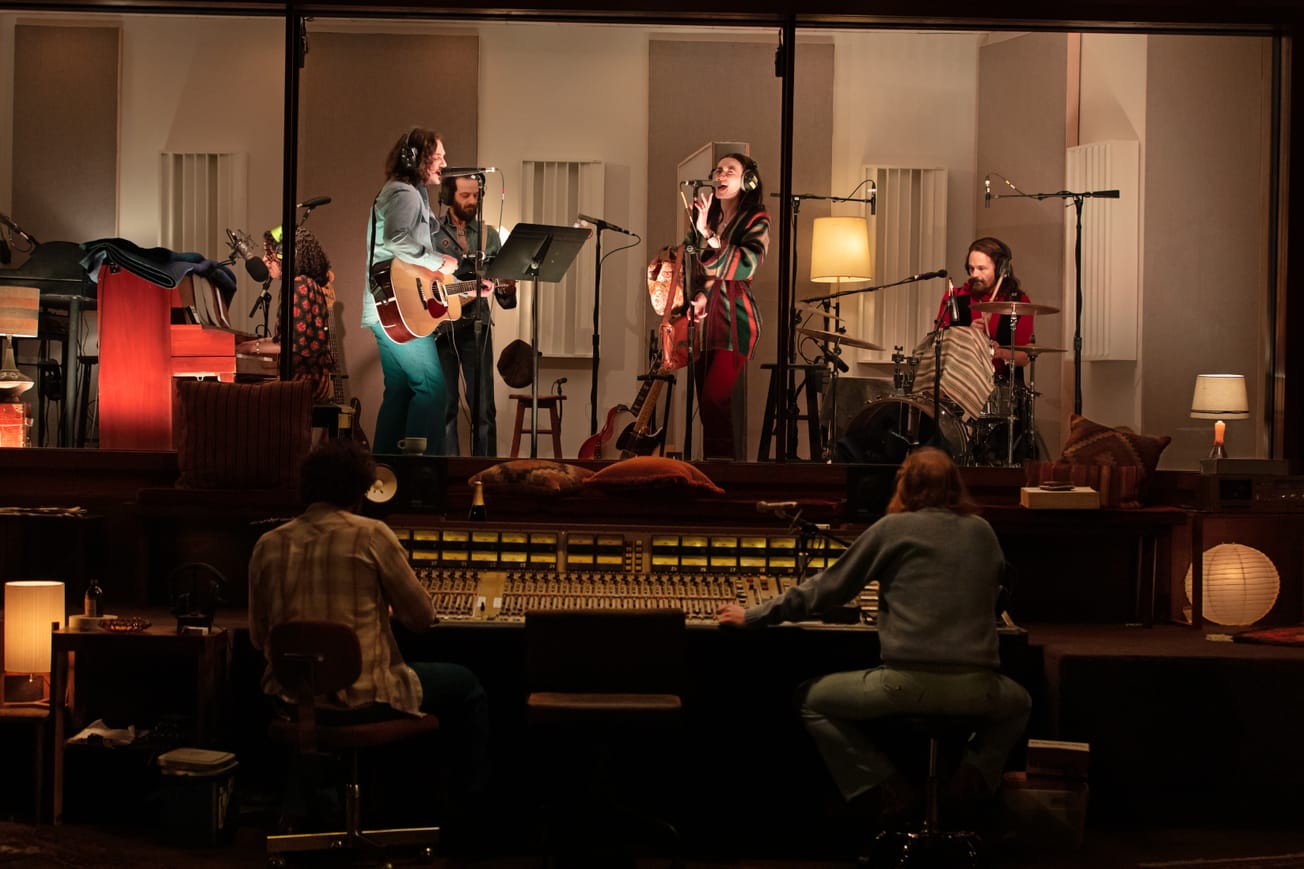Press play on Led Zeppelin’s “Babe I’m Gonna Leave You.” A mournful melody, which sounds like it’s being squeezed from vocalist Robert Plant’s heart, emerges as plucked guitar strings evoke a sort of tortured tango. But then, an energized, pulsing, instrumental refrain — like an amped up rock-’n’-roll version of Chicago’s “25 or 6 to 4” — interjects. That juxtaposition caught the attention of playwright David Adjmi. And not just some of his attention — all of it.
He became totally preoccupied by “the volatility of emotion in the song and the way these seemingly opposing emotions start to conflate in the vocals,” he recalled. “That was interesting to me…the intensity of the emotion in a clinical setting of a studio — that was interesting…” he said. “In my mind’s eye, I started to envision the studio as a [dramatic] setting, and I thought, ‘My God, this has sonic opportunities that I don't know I’ve seen investigated theatrically.”
These ideas became more than interesting. They gnawed at Adjmi.
“I fixate on something, I don’t understand why, and I get obsessive about it and I don’t know why, and then I’m clawing away at this material trying to understand what it is that is obsessing me,” Adjmi said of what typically catalyzes his work.
That fixation was the seed of “Stereophonic” — now the most Tony Award-nominated play in history.


























































